Top 10 EV Charging Station Companies in China 2025
Introduction
The importance of Electric Vehicle (EV) charging companies continues to grow in tandem with the global shift toward electric mobility. With over 2.3 million charging stations currently worldwide, this number is expected to increase year after year, supporting the rapid rise of electric vehicles. According to Fortune Business Insights, the global market for electric vehicle charging stations is forecasted to grow at a compound annual growth rate (CAGR) of 30.26%, expanding from USD 17.59 billion in 2021 to USD 111.90 billion by 2028.
What is an EV Charging Station?
An Electric Vehicle (EV) Charging Station, also known as an EV charger or charging point, is a physical infrastructure where electric vehicles are plugged in to recharge their batteries. These stations are essential in enabling the widespread adoption of electric vehicles by providing convenient and accessible charging options. EV charging stations vary in terms of their charging speeds, capacity, and features to cater to different user needs.
There are three primary types of EV charging stations:
-
Level 1 Charging Stations: These are the most basic type of chargers, utilizing a standard household outlet (120 volts AC). Level 1 chargers are typically slow, offering a modest charging rate suitable for overnight home charging or in places where the vehicle will remain parked for extended periods, such as workplaces.
-
Level 2 Charging Stations: These chargers use a higher-voltage power supply (usually 240 volts AC), enabling faster charging than Level 1. Level 2 chargers are commonly found in public spaces, commercial buildings, and parking lots. They provide a charging rate of approximately 10-60 miles of range per hour, depending on the vehicle and charger specifications.
-
DC Fast Charging Stations (Level 3): DC fast chargers are the fastest type of charging stations, utilizing direct current (DC) to charge the vehicle's battery rapidly. These chargers significantly reduce charging times, offering around 60-80% charge in just 20-30 minutes. Typically located along highways and major travel routes, DC fast chargers are key for long-distance electric vehicle travel.
In addition to charging speed and capacity, EV charging stations can also vary in terms of connectivity, payment methods, and network compatibility. Some advanced charging stations offer smart features, allowing users to remotely monitor charging sessions through mobile apps, providing real-time data on charging status and energy consumption. These features enhance the convenience and accessibility of EV charging, further supporting the widespread adoption of electric vehicles.
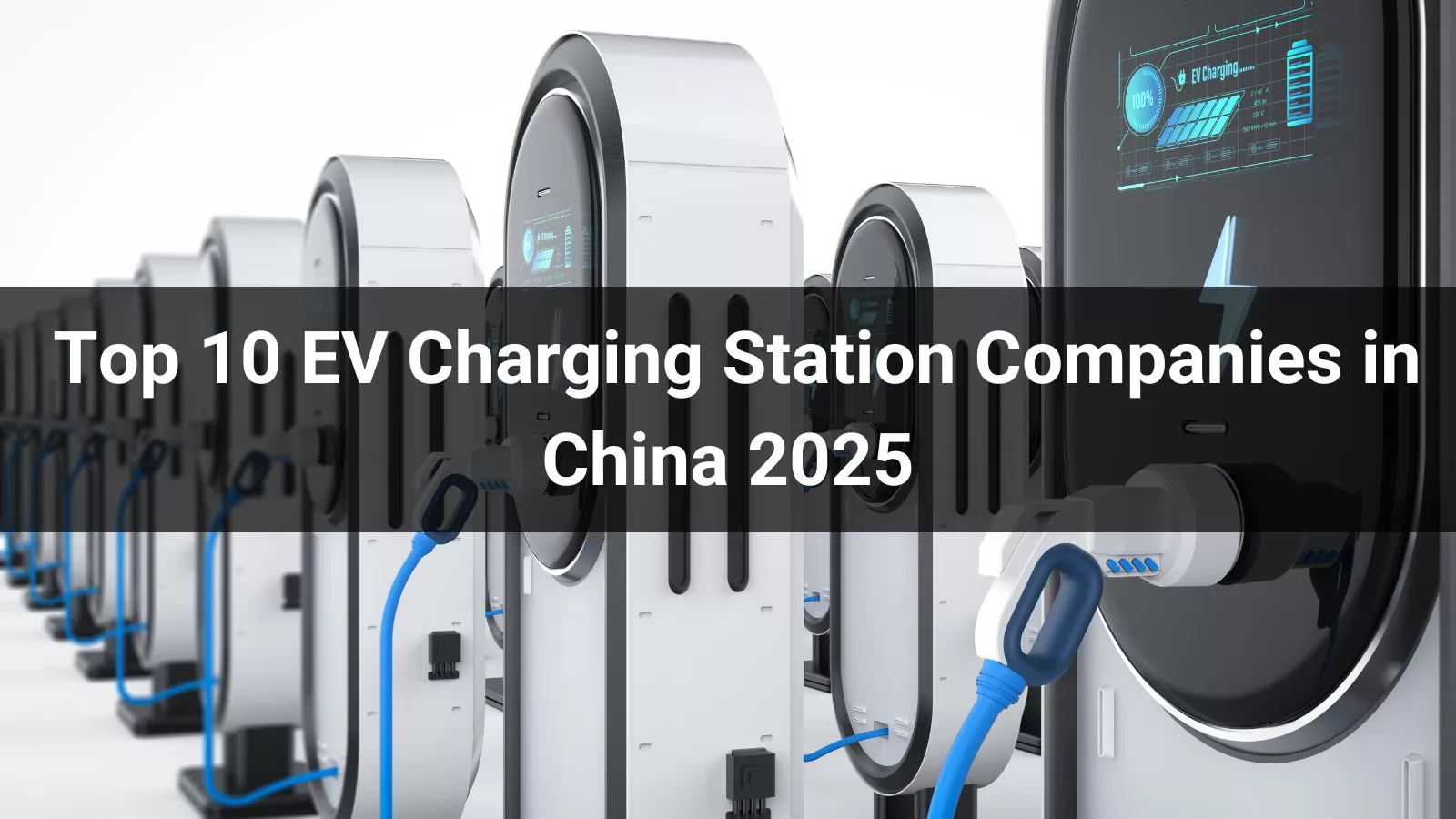
As electric vehicles (EVs) continue to revolutionize the automotive industry, China stands at the forefront of this transformation, boasting the world's largest EV market. Supporting this rapid growth is a robust and ever-expanding charging infrastructure, driven by innovative companies dedicated to advancing EV technology and sustainability.
From global giants like Tesla and ABB to local leaders like State Grid Corporation and BYD, these companies are shaping the future of electric mobility by building comprehensive networks of reliable, efficient, and smart EV charging stations across the country. Here's a look at the top 10 EV charging station companies in China, leading the charge toward a cleaner, greener future.
1. Tesla
Overview:
Tesla stands as a major player in the electric vehicle (EV) charging station industry in China. The company has developed an extensive EV charging infrastructure, featuring a wide network of Tesla Supercharger stations and destination charging points to cater to the growing demand for electric vehicles. With its state-of-the-art technology and commitment to sustainability, Tesla continues to set benchmarks in fast EV charging solutions, ensuring seamless connectivity for its electric car owners across China.
Whether in urban hubs or along highways, Tesla’s electric vehicle charging network demonstrates its dedication to enhancing the convenience and accessibility of EV charging in China. As one of the top EV charging station companies in China for 2025, Tesla is a driving force in the transition to green transportation, supporting the country’s vision for a sustainable future.
Key Achievements:
- Over 1,500 Supercharger stations with 10,000 plugs across China
- More than 700 destination charging stations with 1,900+ connectors
- Offers home chargers, Superchargers on the road, chargers at hotels, restaurants, and mobile chargers
Features:
- Ensures convenient charging for Tesla owners nationwide, allowing for a seamless charging experience anywhere.
2.Anari
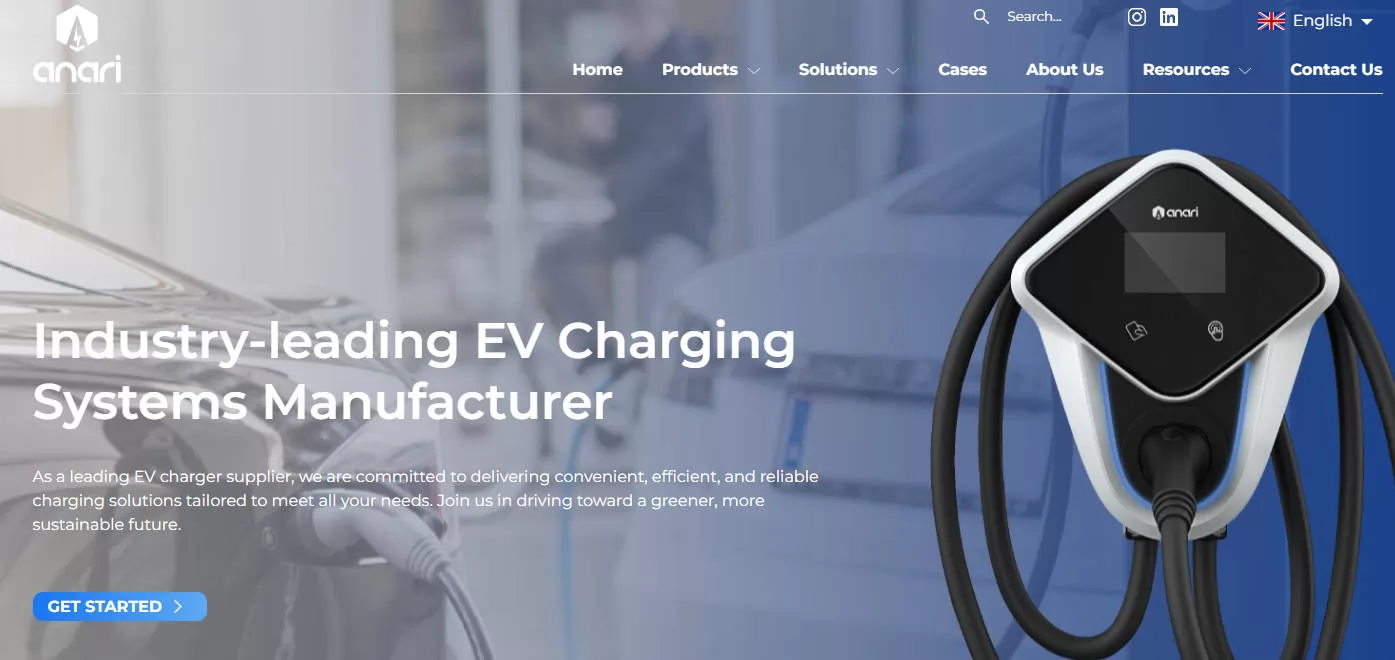
Anari is a prominent leader in China’s EV charging station industry, specializing in the development and deployment of both AC and DC charging solutions. With a strong emphasis on cutting-edge innovation and sustainability, Anari contributes significantly to expanding the country's EV charging infrastructure. Its solutions cater to diverse needs, supporting fast charging for electric cars as well as reliable charging options for commercial and residential users.
As one of the top EV charging station companies in China for 2025, Anari continues to enhance the accessibility of electric vehicle charging stations, facilitating the transition to green energy and supporting the rapid adoption of electric vehicles across China. With a vision to revolutionize the EV landscape, Anari stands as a trusted partner in building a sustainable future for transportation.
Key Achievements:
- Nationwide Charging Network: Anari has built an extensive network of EV charging stations across China, ensuring reliable access for EV users in both urban and rural areas.
- Promoting EV Adoption: By offering fast-charging and home-based solutions, Anari helps accelerate the shift to electric mobility.
Key Products:
-
DC Fast Charging Stations: High-speed chargers that can charge an EV to 80% in as little as 30 minutes, ideal for public spaces and highways.
-
DC Wallbox (30kW / 40kW): Compact and efficient DC chargers for residential and commercial use, offering quick charging with minimal space requirements.
-
AC EV Chargers: Convenient, slower chargers for home use, with models ranging from 7.4kW to 22kW.
-
AC Wallbox (7.4kW / 11kW / 22kW): Flexible wall-mounted chargers for homes and small businesses, designed for overnight charging or public installations.
Anari is committed to providing scalable and reliable EV charging solutions, supporting both individual consumers and businesses in the transition to electric mobility.
3. ABB
Overview:
ABB, renowned worldwide for its expertise in industrial technology, has become a key player in China's EV charging station industry. Leveraging its deep knowledge in energy management and automation, ABB offers advanced EV charging solutions tailored to the growing demand for renewable energy-based charging infrastructure. The company provides both AC and DC fast chargers, ensuring compatibility with a wide range of electric vehicles and enabling seamless charging experiences.
As one of the top EV charging station companies in China for 2025, ABB’s innovative solutions are pivotal in supporting the expansion of electric vehicle charging networks across urban and rural areas. By integrating automation and renewable energy technologies, ABB contributes to creating a sustainable and efficient EV ecosystem, advancing the adoption of green transportation in China.
Key Achievements:
- Established varied types of charging stations: fast chargers, smart chargers, and more
- Invested heavily in developing high-efficiency charging solutions
- Charging stations deployed in car factories, public spaces, and parking lots
Features:
- Smart charging stations that can optimize the charging process for improved efficiency
- Availability of quick chargers for faster and convenient charging.
4. Electrly
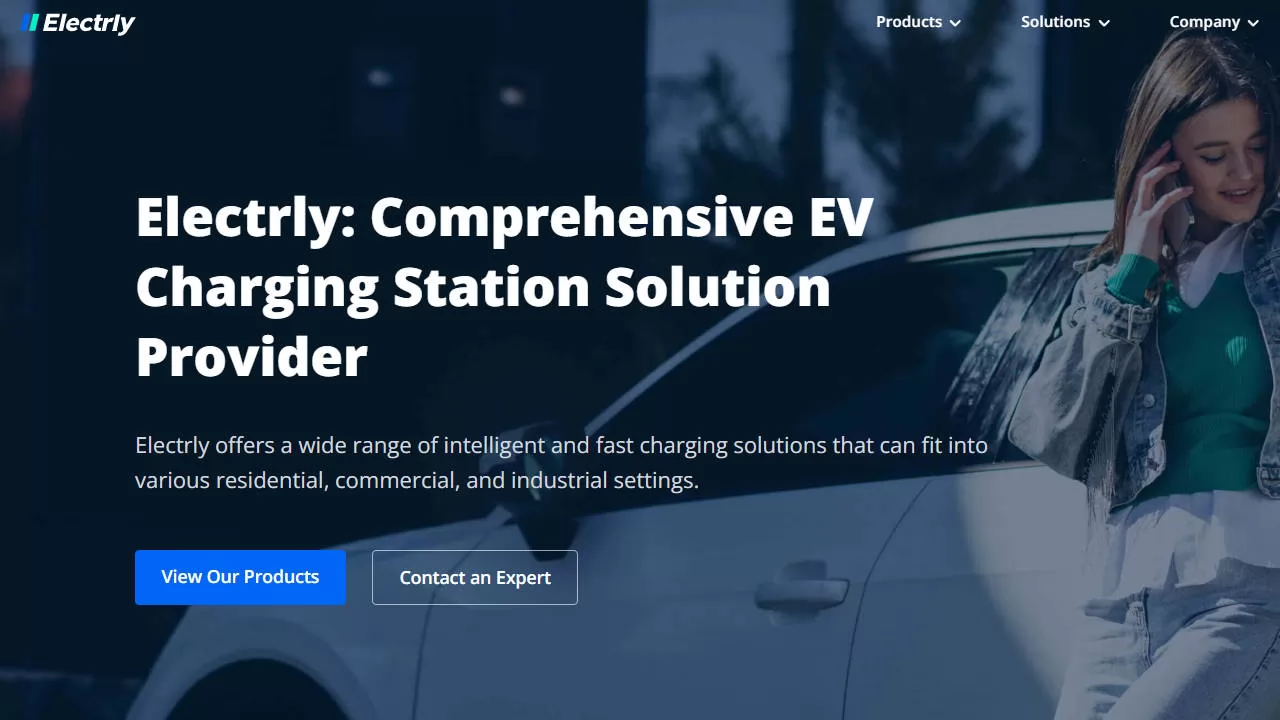
Overview:
China Southern Power Grid is a significant contributor to the development of China’s EV charging station network. As a major player in the country’s electric vehicle (EV) charging infrastructure, the company has been actively expanding its network of charging stations to meet the surging demand for EVs on the road. With a strong commitment to sustainable energy and technological innovation, China Southern Power Grid plays a critical role in supporting the growing adoption of electric vehicles.
As one of the top EV charging station companies in China for 2025, China Southern Power Grid ensures that its EV charging solutions cater to both urban and intercity travel, fostering a seamless transition to renewable energy-powered transportation. By driving the growth of electric vehicle charging infrastructure, the company is helping to accelerate the shift towards a greener future in China.
Key Products:
-
DC Fast Charging Stations: High-speed chargers that can charge an EV to 80% in as little as 30 minutes, ideal for public spaces and highways.
-
DC Wallbox (30kW / 40kW): Compact and efficient DC chargers for residential and commercial use, offering quick charging with minimal space requirements.
-
AC EV Chargers: Convenient, slower chargers for home use, with models ranging from 7.4kW to 22kW.
Key Achievements:
- Expanding its nationwide charging network
- Provides reliable electricity distribution for EV charging stations.
Features:
- Promotes the adoption of clean energy for electric vehicles.
5. BYD
Overview:
BYD, a renowned Chinese electric vehicle (EV) manufacturer, is also a prominent player in the EV charging station industry. The company designs, manufactures, and installs a diverse range of EV chargers to meet both residential and commercial charging needs. With its expertise in green energy technology, BYD offers innovative and reliable solutions that align with the growing demand for sustainable transportation.
As one of the top EV charging station companies in China for 2025, BYD is dedicated to enhancing the EV charging infrastructure across the country. Its solutions include fast chargers and smart charging systems, ensuring convenience and efficiency for electric vehicle users. BYD’s commitment to integrating advanced technology with renewable energy further strengthens its position as a leader in China’s EV ecosystem.
Key Achievements:
- Focus on high-speed charging solutions
- Offers integrated solutions for EV charging, including home chargers and public station networks.
Features:
- User-friendly chargers for EV owners, with a focus on quick charging times.
6. Linkpower
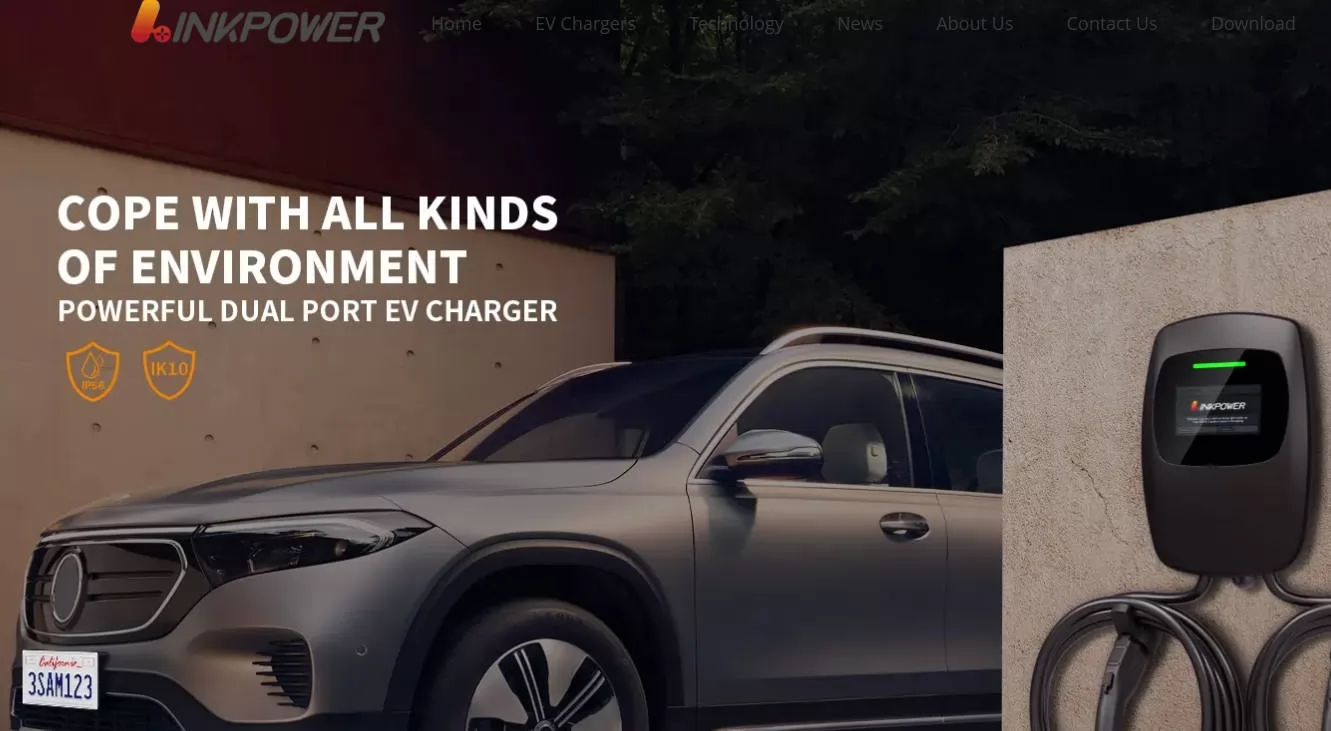
7. NIO Power
Overview:
NIO, renowned for its premium electric vehicles, is also a key player in China’s EV charging infrastructure through its innovative NIO Power network. This comprehensive network provides a variety of charging solutions, including both fast charging stations and battery swap stations, to meet the evolving needs of electric vehicle owners. By offering convenient and efficient charging options, NIO is revolutionizing the EV charging experience in China.
As one of the top EV charging station companies in China for 2025, NIO is committed to expanding its charging network, supporting the widespread adoption of electric vehicles, and providing seamless, renewable energy-powered solutions for NIO owners and the broader EV community.
Key Achievements:
- Provides home charging and fast-charging stations
- Expanding its supercharging network to ensure long-range travel for its users.
Key Products:
-
DC Fast Charging Stations: High-speed chargers that can charge an EV to 80% in as little as 30 minutes, ideal for public spaces and highways.
-
DC Wallbox (30kW / 40kW): Compact and efficient DC chargers for residential and commercial use, offering quick charging with minimal space requirements.
-
AC EV Chargers: Convenient, slower chargers for home use, with models ranging from 7.4kW to 22kW.
Features:
- Focus on battery swapping technology, offering faster alternatives to traditional charging methods.
8. Xpeng Motors
Overview:
Xpeng Motors, a leading Chinese electric vehicle (EV) manufacturer, has developed its proprietary charging infrastructure to support the growing adoption of its electric vehicles. The company is actively expanding its EV charging network, with a strong focus on urban areas, to ensure that Xpeng owners have easy access to convenient and efficient charging solutions.
As one of the top EV charging station companies in China for 2025, Xpeng Motors is committed to enhancing its charging capabilities, providing both fast charging stations and smart charging solutions to meet the needs of urban and intercity travelers. This expansion supports China’s transition to clean energy and plays a vital role in making EV ownership more practical and accessible.
Key Achievements:
- Provides high-power charging stations for rapid EV recharging
- Focus on user convenience with an extensive network of public chargers.
Features:
- Integration with smart apps to track charging progress and station availability.
9. TGOOD

Overview:
TGOOD, a leading battery manufacturer, is also investing in EV charging solutions. The company focuses on creating high-quality, efficient, and reliable charging stations for electric vehicles.
Key Achievements:
- Provides battery swapping stations and fast chargers
- Developing intelligent charging systems for enhanced user experience.
Key Products:
-
DC Fast Charging Stations: High-speed chargers that can charge an EV to 80% in as little as 30 minutes, ideal for public spaces and highways.
-
DC Wallbox (30kW / 40kW): Compact and efficient DC chargers for residential and commercial use, offering quick charging with minimal space requirements.
-
AC EV Chargers: Convenient, slower chargers for home use, with models ranging from 7.4kW to 22kW.
10. Pylontech
Overview:
Pylontech is primarily known for its battery storage systems, but it is also venturing into the EV charging market, offering smart charging solutions that integrate with energy storage.
Key Achievements:
- Developed battery storage-powered charging stations for sustainable energy solutions
- Focus on charging infrastructure that maximizes energy efficiency.
Features:
- Focus on battery-backed chargers to support off-grid charging needs.
Summary
These companies are at the forefront of shaping China’s EV charging infrastructure, playing pivotal roles in making electric vehicles more accessible and driving the country toward a sustainable future. From global giants like Tesla and ABB to local innovators such as State Grid Corporation and BYD, the rapidly expanding network of EV chargers across China ensures that electric vehicles (EVs) are becoming a viable and convenient option for consumers nationwide and even internationally. The diverse range of charging solutions, from residential units to fast chargers in commercial hubs, is key to making EVs a mainstream choice for urban and rural drivers alike.
In this landscape, Anari, a rising star in the EV charging industry, stands out as a notable manufacturer. Founded in 2021, Anari has quickly established itself as a leading player in the sector. Positioned as both a top AC and DC EV charging company, Anari excels in the research, development, production, and sales of high-performance EV chargers. As an EV charging solutions company, Anari provides comprehensive solutions tailored to meet a variety of needs, from residential installations to high-speed DC charging stations for commercial and public use. With a strong commitment to innovation and quality, Anari’s products are designed to meet international standards, ensuring reliability, safety, and efficiency. Their rapid rise in the market highlights the growing importance of homegrown Chinese manufacturers in supporting the global shift toward electric mobility.Contact us!
Read more:
Top 10 EV Charger Manufacturers in the USA in 2025
Step-by-Step Guide: How to Install an Electric Car Charging Station
Top 10 EV Charging Companies in the World 2025
The state of EV Charging in the Middle East Region - Anari Energy

You Might Also Like...
-
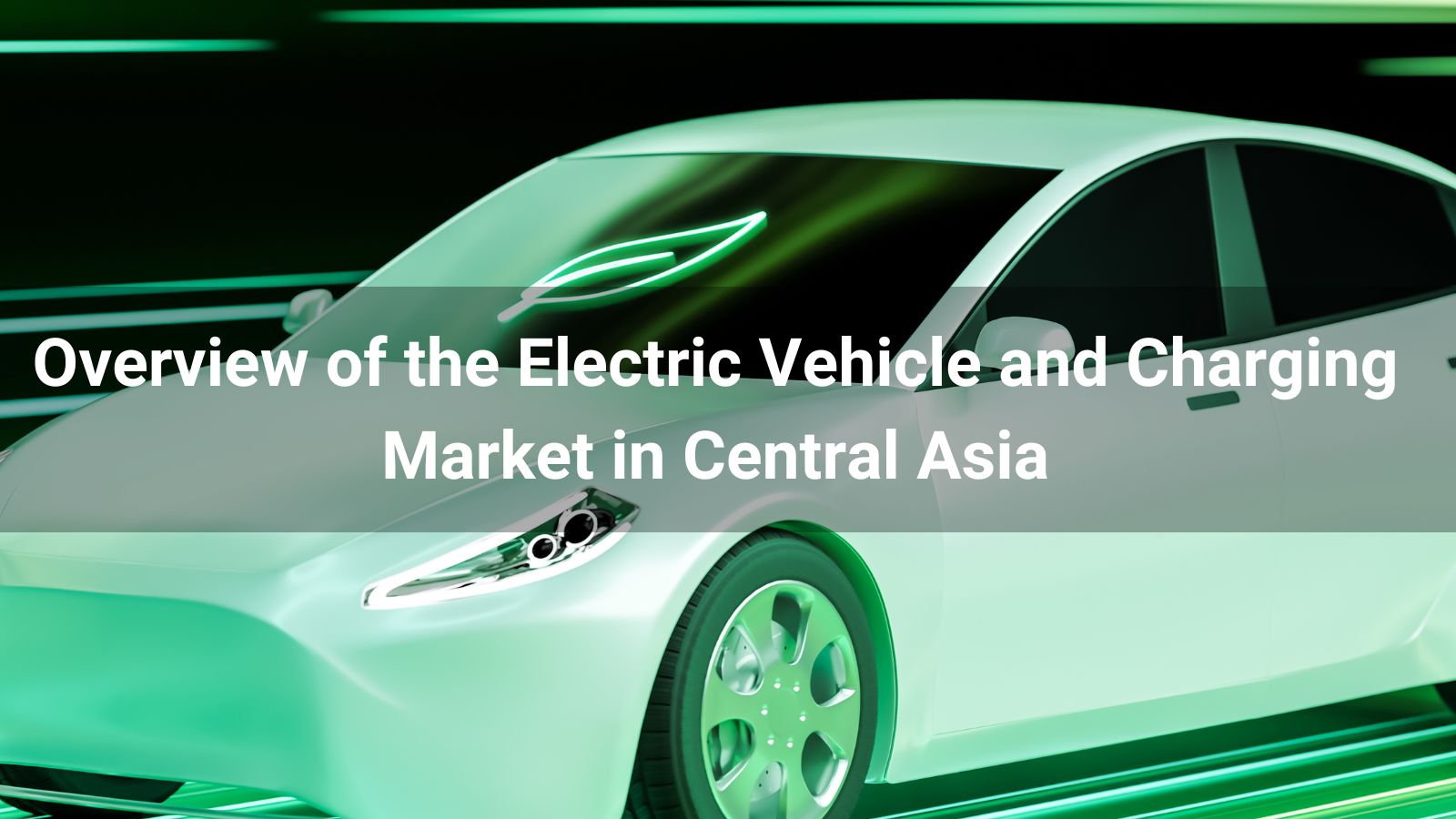
Overview of the Electric Vehicle and Charging Market in Central Asia
2026 Feb,05 -
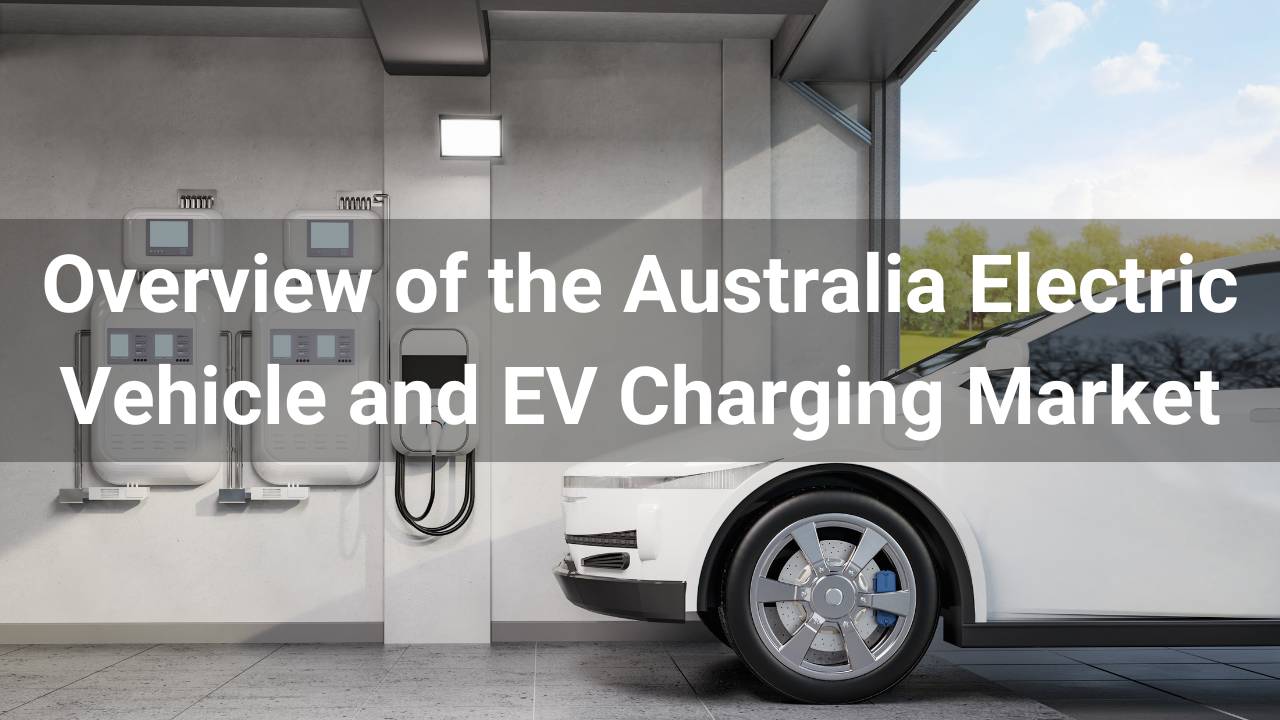
Overview of the Australia Electric Vehicle and EV Charging Market
Australia's electric vehicle (EV) market is rapidly expanding, with Tesla leading the high-end segment and Chinese brands like BYD gaining traction among mid-to-low-end consumers.2026 Feb,05 -
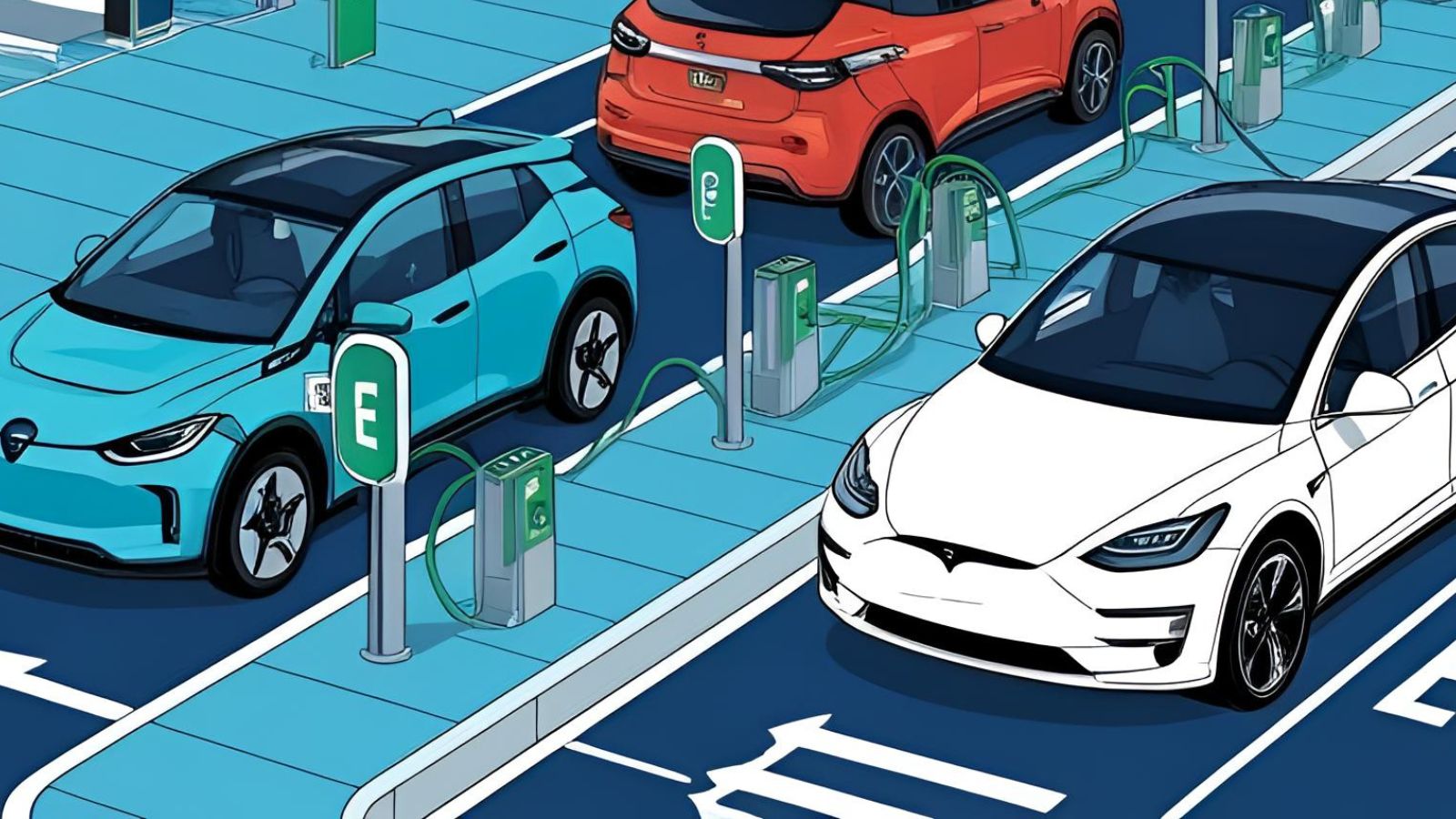
List of 60 EV Charging Companies in 2026
EV charging companies are at the forefront of this revolution, driving the transition to sustainable transportation through innovative technologies and expansive networks. Below is a list of 60 leading EV charging companies worldwide in 2026, showcasing the key players shaping the future of mobility.2026 Jan,26












